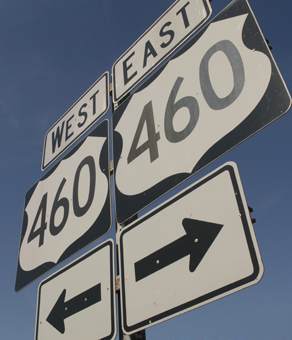
“This settlement will bring millions in taxpayer dollars that were wasted on the U.S. Route 460 project back to taxpayers and prevent the Commonwealth from having to pay millions more,” said Governor McAuliffe. “While this is a positive development, the fact remains that Virginians have already spent hundreds of millions of dollars on a project that will never be built because state officials negotiated a contract that left the Commonwealth holding the bag when the environmental risks were too great to move forward. I regret that that contract did not allow for greater steps to mitigate the impact of this failed project, but I am proud of the bipartisan reforms we worked with leaders like Delegate Chris Jones to make to prevent disasters like this from occurring in the future.”
Governor McAuliffe announced the settlement at a ceremonial bill signing for new bipartisan legislation that reforms Virginia’s approach to public-private transportation projects in the wake of the failed U.S. Route 460 project. House Bill 1886 reforms how Virginia finances transportation projects under the Public-Private Transportation Act, or P3 program. The new law will prevent bad P3 deals and identify beneficial opportunities to protect the public’s best interests.
House Bill 1886 requires three key factors:
- An independent screening committee, with representation from the General Assembly, will decide if a transportation improvement should be financed as a P3 project. These meetings will be open to the public. For the first time, the General Assembly will be involved and engaged from the beginning.
- Critical to the decision making is the level of risk involved. The risk must be transferred from the taxpayers to the private sector. Decision makers will have access to all the risks involved in a potential P3 deal so they can make the right decision. The law puts in place new procedures for high-risk projects that will shield the public from unexpected liabilities.
- The legislation will draw clear lines of accountability. The secretary of transportation will be required to sign a document attesting that the project qualifies as a P3 project, meaning risk has been transferred to the private sector and that the original purpose of the procurement has not changed.
“There will be no way to duck responsibility for transportation decisions,” said Transportation Secretary Aubrey Layne. “It will protect taxpayers from undue risk, while using the P3 process in the intended way to deliver projects that move Virginia’s economy.”










